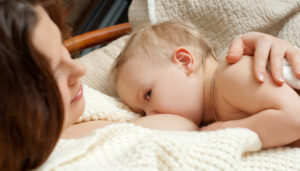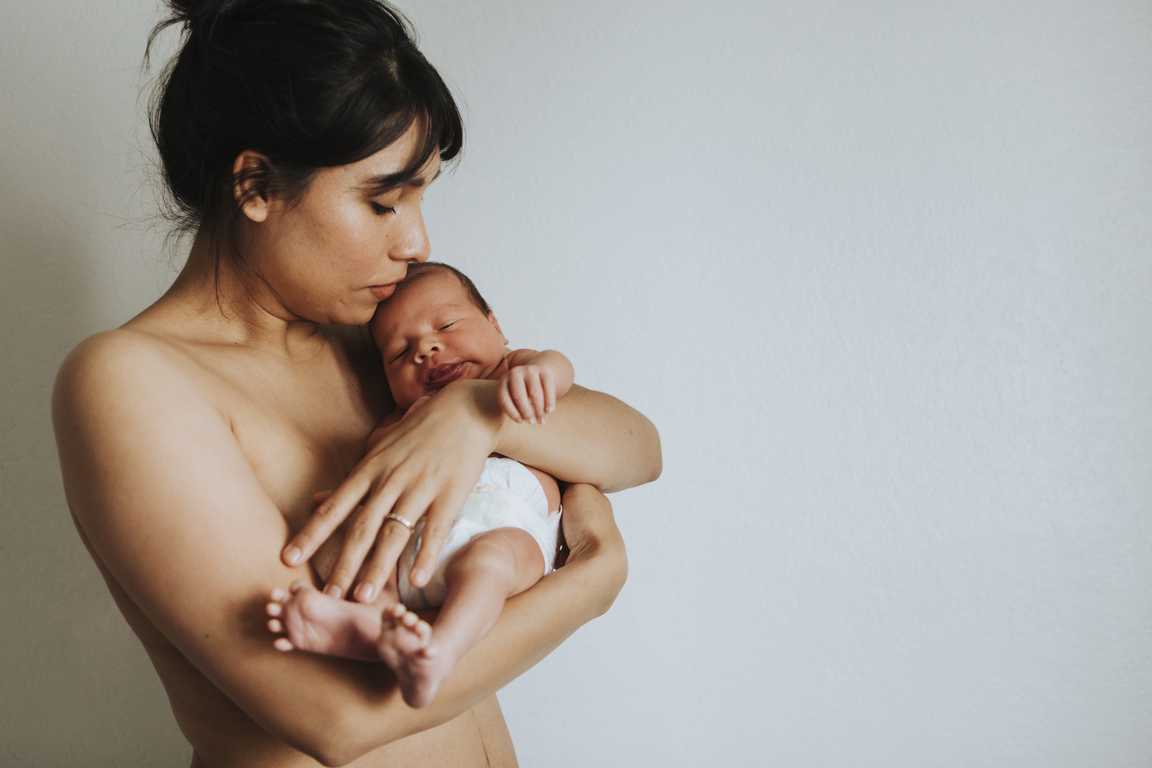A lot of health and figure-conscious women are scared of how their bodies will look like after being pregnant. It’s almost inevitable that you will go through so many physical changes, especially when it comes to your weight. That’s why most moms make breastfeeding and weight loss their top priority.
Truth be told, many moms find it difficult to burn the fat away simply because they don’t have the time to execute their weight loss plans. Fortunately, one great benefit of breastfeeding is that it’s a good calorie-burning activity! So you’re able to feed your baby with the best nutrition while burning the calories away! Learn more about the energy expending mechanisms of breastfeeding and some diet and weight loss tips to lose your pregnancy weight.
In A Nutshell…
- Breastfeeding burns calories as it needs the energy to fuel milk production. It derives energy from your fat reserves and calories from your diet.
- On average, breastfeeding can burn as much as 650 calories per day. This number will vary depending on the frequency of breastfeeding, milk supply, and the mother’s nutritional status.
- Due to the demand for more energy, it is recommended for breastfeeding moms to increase caloric intake by 500 per day. This equates to just a light meal or a midday snack.
- Other than the extra calories, breastfeeding mothers should also pay close attention to other aspects of their nutrition.
- To lose the pregnancy weight, have a holistic and well-balanced diet coupled with a regular exercise routine and frequent breastfeeding.
Story Time
With my boys, I went back to my pre-pregnancy weight by 6 months postpartum. That may seem like a long time, but it was actually a healthy and safe weight loss. In fact, I ended up less than what I had been weighing before. I didn’t even do anything different with my diet and just did a bit of exercise. To lose weight, I just made sure I was eating healthy and balanced meals. The most rewarding thing was that I never regained the weight, and have kept my slim figure too.
Burning Calories Through Breastfeeding
Breast milk is wonderfully composed of different nutrients and immunity-boosting substances needed to nourish and protect your baby. In doing so, the necessary organs and hormones work in full gear so that your body can generate breast milk. Milk production is fueled by the energy which it acquires from different sources, such as fat cells in the body or through the calories you consume.
Breastfeeding burns calories because, in order to get energy from the fat cells and the food that you eat, calories need to be converted from its complex form down to a simple unit of energy. Then, the energy is used by the body to power your lactation.
How Many Calories Are Burned Through Breastfeeding
The number of calories burned through breastfeeding can vary from one mom to another. Thus, defining the additional energy requirements needed by lactating mothers continues to be a debate. According to experts, a lot of breastfeeding mothers do not even require that much of an increase in their caloric intake.
In general, the number of additional calories needed for breastfeeding would depend on the frequency of breastfeeding and the mother’s nutritional status. If you breastfeed often and do not have much fat stored in your body (eg. those who are underweight), your caloric requirements will definitely be higher. In addition, breastfeeding demands more calories if you are:
- Exclusively breastfeeding 8 to 12 times in a day
- Have an oversupply of breast milk
- Breastfeeding a baby that’s less than 6 months
Breastfeeding By The Number
Roughly, it takes about 26 calories to produce one ounce of breast milk. As your baby ages, their breast milk demands will also differ. The first year averages at around 25 ounces per day, but should eventually decrease as your baby incorporates more solid foods in their diet. This means that a day’s worth of breast milk production would require 650 calories worth of total energy.
The American Pregnancy Association and the Institute of Medicine base their recommendation to increase the caloric intake on this calculation. Breastfeeding mothers should eat an additional 500 calories each day after pregnancy to meet the body’s demand for more energy. This is equivalent to one midday snack or a small meal. The rest of the 150 calories would then come from the fat stores you have gained throughout your pregnancy.
Do You Need To Change Your Diet While Breastfeeding?
Since caloric needs postpartum depend on a myriad of factors, breastfeeding moms need to consider their age, post-pregnancy weight, physical activity, and frequency of breastfeeding. The general recommendations of the American College of Obstetricians and Gynecologists (ACOG) for breastfeeding moms is to consume an additional 500 calories per day on top of daily caloric intake to compensate for the body’s increased energy demand.
It’s important to keep in mind that this number of calories is not absolute. For instance, if you have become overweight after being pregnant, you may only need 200-300 extra calories. On the contrary, breastfeeding mothers who are underweight would require 600 or more calories per day. To know your specific caloric needs, it’s best to consult a registered dietitian, lactation consultant, or your gynecologist.
Dietary Changes for Breastfeeding Women
Eating well for you and your baby is essential in having a successful breastfeeding experience. Your nutrition plays a key role in your baby’s growth and development, as well as your healing and recovery postpartum. Nourishing your body with a holistic, balanced, and sustainable diet is vital so that you and your baby’s energy and nutrient needs can be met.
In terms of your caloric intake, do not think that the additional 500 calories you burn give you license to eat more food. The merely translates to a midday snack or a light meal! So don’t assume that eating unhealthy snacks like chips or donuts helps with your caloric intake. Not paying attention to your diet may lead you to overeat and gain even more weight.
Here are some nutritional guidelines breastfeeding moms should follow:
- Consume protein-rich foods. Foods high in protein like lean meats, eggs, dairy, beans, and dark leafy greens are beneficial in stimulating breast milk production.
- Hydrate well. Breast milk production also entails some water losses. To supplement, make sure you are drinking water frequently, especially in between nursing sessions.
- Avoid high-mercury fishes. Swordfish, king mackerel, and tilefish should be limited in your diet since these fishes may have high mercury content which is harmful to your baby.
- Limit your consumption for spicy foods, caffeine, and alcohol. Caffeine, spicy foods, and alcohol can be passed through breast milk. This can make them irritable and distressed, and may even become harmful to your baby. If you do plan to consume these, it’s recommended to breastfeed only two hours after.
Breastfeeding and Weight Loss

Although many lactation experts believe that breastfeeding and weight loss go hand-in-hand, there still aren’t enough studies to correlate the frequency of breastfeeding to the amount of weight loss postpartum. A review of different studies on breastfeeding and weight loss found that nursing may only have a small effect on your weight after pregnancy.
On the other hand, some studies suggest that limiting caloric intake to 2000 calories per day plus a 45-minute aerobic exercise every other day of the week may lead to a weight reduction of up to half a kilo while still being able to maintain adequate milk supply. However, it’s important to note that in terms of weight loss there will be biological differences from one woman to another. Some will have an easy time losing weight while other moms might struggle to shed the weight.
Just like with any weight loss plan, a healthy and balanced diet with a regular exercise routine will make a huge difference in your weight. In addition, frequent breastfeeding can also help in achieving your ideal weight. Aim for a sustainable eating and workout plan so you can continue your healthy lifestyle even after breastfeeding.
In Summary…
Breastfeeding holds true as a beneficial activity for both mom and baby. In addition to nourishing your baby with the best nutrients, it’s also a good calorie-burning activity! This is because your body needs fuel from your fat stores and diet in order to produce milk.
Most women in the first year of their breastfeeding journey are able to expend around 500 calories per day just breastfeeding. Of course, this number is not absolute and will vary from one mom to another. In general, women who breastfeed often, those that oversupply, and those that are underweight may need to increase their caloric intake more to sustain their milk supply.
Since you’re burning more energy in a day, it’s recommended to increase your daily consumption at around 500 calories as well. However, don’t take this advice as an excuse to binge on unhealthy snacks! 500 calories equate to just a small meal or a midday snack! If you are aiming to lose your pregnancy weight, it’s best to achieve a healthy diet coupled with regular exercise and frequent breastfeeding. Consult a doctor or a dietitian to help you with breastfeeding and weight loss.






